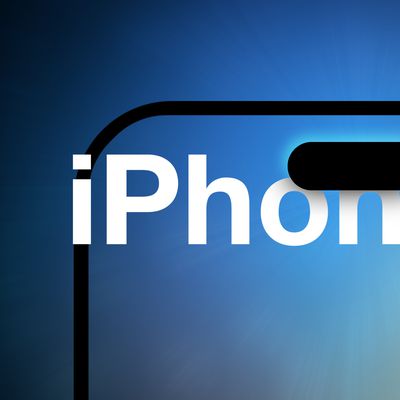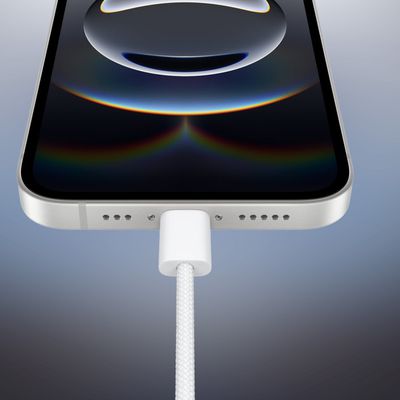Google to Pay $22.5 Million Settlement in Safari Privacy Circumvention Case
In line with last month's report on negotiations between Google and the U.S. Federal Trade Commission (FTC) over the company's circumvention of privacy settings in Safari, the FTC has officially announced that Google has agreed to pay a record $22.5 million penalty to settle the case.
The settlement is part of the FTC’s ongoing efforts make sure companies live up to the privacy promises they make to consumers, and is the largest penalty the agency has ever obtained for a violation of a Commission order. In addition to the civil penalty, the order also requires Google to disable all the tracking cookies it had said it would not place on consumers’ computers.
“The record setting penalty in this matter sends a clear message to all companies under an FTC privacy order,” said Jon Leibowitz, Chairman of the FTC. “No matter how big or small, all companies must abide by FTC orders against them and keep their privacy promises to consumers, or they will end up paying many times what it would have cost to comply in the first place.”
Google took advantage of a loophole in Safari's privacy settings designed to prevent placement of third-party cookies by default, using invisible web forms to trick Safari into thinking that users had interacted with Google's ads and thus allowing cookies to be placed on the device.
The FTC specifically charged Google with violating an October 2011 order related to a previous case of privacy violations. In the new Safari case, FTC commissioners voted 4-1 to approve the settlement, with the dissenting commissioner arguing against the settlement allowing Google to deny all liability related to the issue.
Popular Stories
iOS 19 is still around three months away from being unveiled, but there are plenty of rumors about the upcoming update.
Below, we recap iOS 19 rumors so far.
Redesigned Camera App
A leak earlier this year allegedly revealed a redesigned Camera app coming with iOS 19.
On his YouTube channel Front Page Tech in January, Jon Prosser shared a video showing what the new Camera app will...
In a recent press release, Apple confirmed that iOS 18.4 will be released in April.
From the Apple News+ Food announcement:Coming with iOS 18.4 and iPadOS 18.4 in April, Apple News+ subscribers will have access to Apple News+ Food, a new section that will feature tens of thousands of recipes — as well as stories about restaurants, healthy eating, kitchen essentials, and more — from the...
Apple is expected to embrace a new camera system design for some models in its upcoming iPhone 17 series, and the latest purported CAD images don't deviate from what we have been hearing lately about Apple's new lineup. If you do not like the sound of an iPhone with a Google Pixel-style camera bar, look away now.
Seasoned leaker Sonny Dickson shared the following images in a post on X...
iOS 18.4 was supposed to bring new Apple Intelligence Siri features, but Apple ended up needing to pull those capabilities from the update to continue testing. There are fewer new Apple Intelligence additions now, but there are still some new features that will make the update worth installing when it comes out in April.
Priority Notifications
Apple introduced Priority Notifications back at ...
Apple has offered a reason why the iPhone 16e doesn't include MagSafe, one of the more notable omissions from its latest entry-level smartphone.
According to Apple representatives who spoke to Daring Fireball's John Gruber, MagSafe is not included in the iPhone 16e because "most people in the iPhone 16e's target audience exclusively charge their phones by plugging them into a charging...
With the iPhone 16e now in the hands of customers, Apple reportedly plans to move on to its next product announcement in the coming days.
Apple plans to announce new MacBook Air models with the M4 chip "as early as this week," according to Bloomberg's Mark Gurman.
"I expect the M4 MacBook Air to be introduced as early as this week," said Gurman, in a post shared on X today. "Inventory has ...
Throughout the 2000s and 2010s, Apple offered a line of Wi-Fi routers that it referred to as AirPort base stations. There was a standard AirPort Express, a higher-end AirPort Extreme with more advanced networking features, and an AirPort Time Capsule that doubled as an external storage drive for backing up a Mac with Time Machine.
Apple discontinued the AirPort line in 2018, but the company...
iPhone 16e reviews are now out, and Apple's custom-designed C1 modem has been put to the test. The results so far are quite surprising, as the C1's speeds are not as slow compared to Qualcomm modems as originally expected.
While the C1 does not support ultra-fast mmWave 5G in the U.S., it appears to offer comparable 5G performance to Qualcomm's Snapdragon X71 modem found in the iPhone 16,...
According to a post on X today from a leaker known as Kosutami, Apple plans to launch AirPods Pro 3 in May or June this year.
The leaker also claimed that an AirTag 2 will launch around the same time.
Kosutami is best known as a collector of prototype Apple hardware, but they have occasionally shared accurate information about Apple's future product plans. For example, they accurately...
























